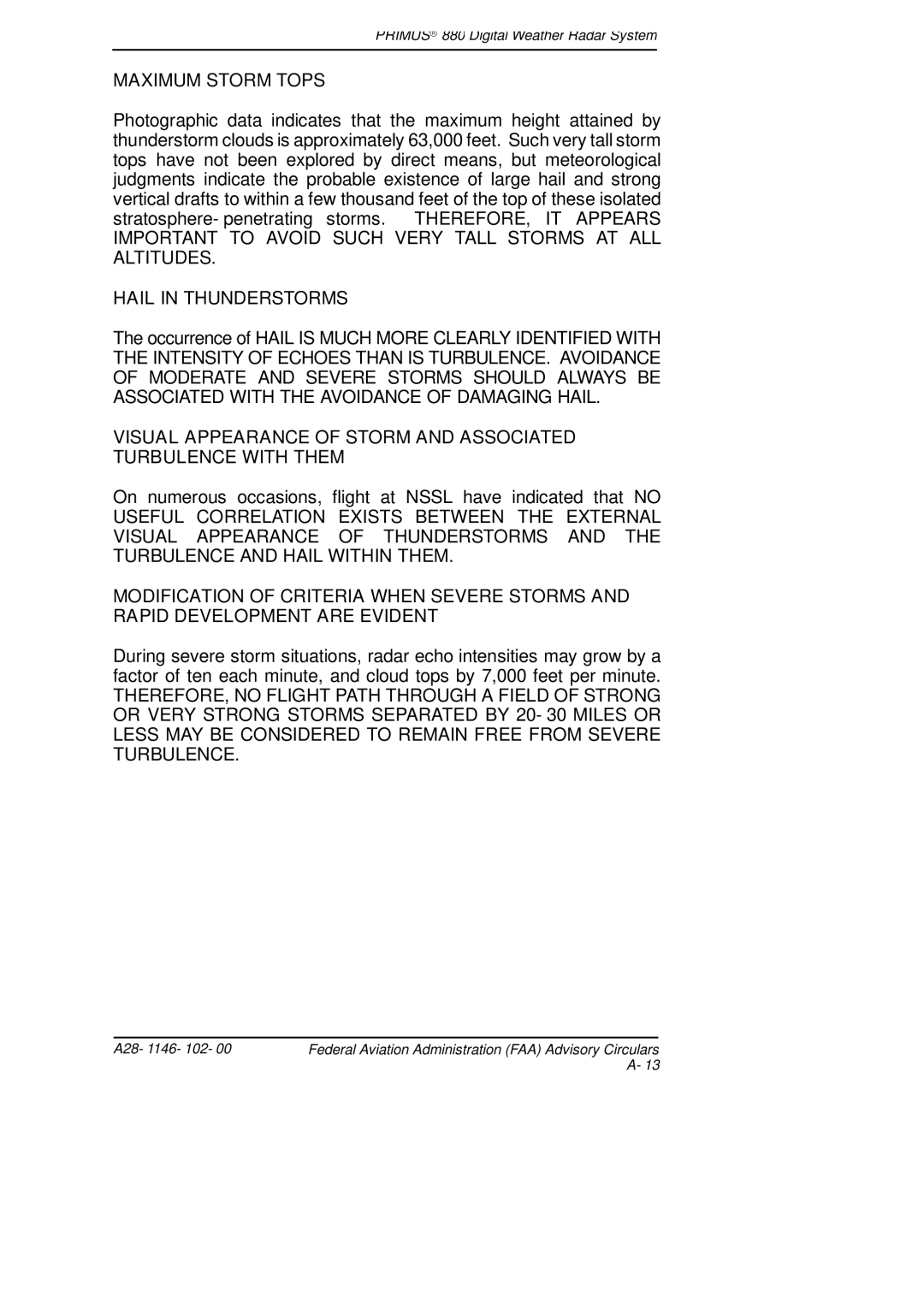
PRIMUSr 880 Digital Weather Radar System
MAXIMUM STORM TOPS
Photographic data indicates that the maximum height attained by thunderstorm clouds is approximately 63,000 feet. Such very tall storm tops have not been explored by direct means, but meteorological judgments indicate the probable existence of large hail and strong vertical drafts to within a few thousand feet of the top of these isolated stratosphere- penetrating storms. THEREFORE, IT APPEARS IMPORTANT TO AVOID SUCH VERY TALL STORMS AT ALL ALTITUDES.
HAIL IN THUNDERSTORMS
The occurrence of HAIL IS MUCH MORE CLEARLY IDENTIFIED WITH THE INTENSITY OF ECHOES THAN IS TURBULENCE. AVOIDANCE OF MODERATE AND SEVERE STORMS SHOULD ALWAYS BE ASSOCIATED WITH THE AVOIDANCE OF DAMAGING HAIL.
VISUAL APPEARANCE OF STORM AND ASSOCIATED TURBULENCE WITH THEM
On numerous occasions, flight at NSSL have indicated that NO USEFUL CORRELATION EXISTS BETWEEN THE EXTERNAL VISUAL APPEARANCE OF THUNDERSTORMS AND THE TURBULENCE AND HAIL WITHIN THEM.
MODIFICATION OF CRITERIA WHEN SEVERE STORMS AND RAPID DEVELOPMENT ARE EVIDENT
During severe storm situations, radar echo intensities may grow by a factor of ten each minute, and cloud tops by 7,000 feet per minute.
THEREFORE, NO FLIGHT PATH THROUGH A FIELD OF STRONG OR VERY STRONG STORMS SEPARATED BY 20- 30 MILES OR LESS MAY BE CONSIDERED TO REMAIN FREE FROM SEVERE TURBULENCE.
A28- 1146- 102- 00 | Federal Aviation Administration (FAA) Advisory Circulars |
| A- 13 |
